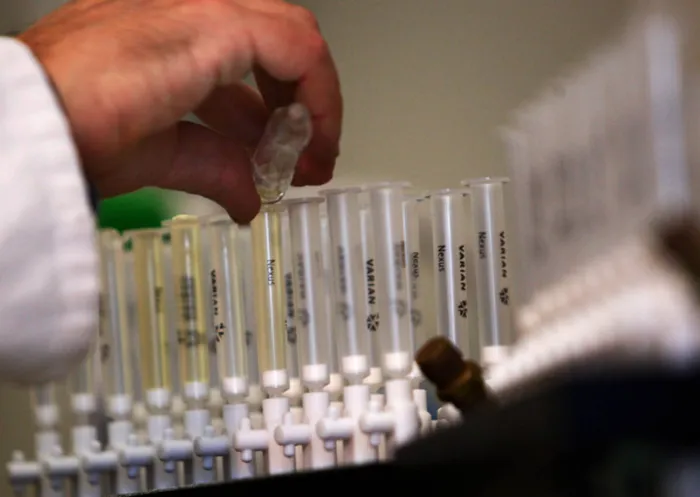DNA factory unveiled at UK university

By synthetically creating DNA, it will speed the process up to 100 times faster than a human scientist. File Photo: AP Photo/Sang Tan By synthetically creating DNA, it will speed the process up to 100 times faster than a human scientist. File Photo: AP Photo/Sang Tan
London - The brave new world of synthetic biology has taken a major step forward as the UK opened its first DNA factory - manufacturing genetic components that will be used to tackle everything from global warming to vaccines.
Synthetically creating the right DNA formula - for example, to artificially produce penicillin - is an extremely laborious process when carried out manually, as scientists painstakingly try out numerous combinations of genes from various organisms before finding the combination that works.
But the opening of the £2 million foundry at Imperial College London should speed up the process through a new automated lab that can run thousands of experiments simultaneously.
This should help to identify the winning combination of genes needed for a given task between 10 and 100 times as quickly as a human scientist would using the traditional apparatus of pipettes and Petri dishes.
To produce fuel more efficiently: at the moment ethanol is made by crushing up the sugar cane and fermenting it to produce the biofuel. But the process is highly inefficient because the naturally occuring plant relies upon a “metabolic pathway” - the chemical reactions that make it function - that wastes about 80 percent of its sugar strengthening itself to withstand high winds. By identifying the right genetic components, bioethanol could be produced much more efficiently, significantly reducing the amount of land needed to grow them on.
To produce energy: scientists are looking into creating a synthetic alga that could be harvested from the water and turned into biofuel. Although this would release CO2 when it was burned, this would only have been absorbed relatively recently as the algae grow, making it more environmentally friendly than fossil fuels that have locked up the carbon for years.
To create penicillin: the process involves taking the genetic properties from various species of funghi and injecting them into a yeast cell. This creates penicillin, an antibiotic that has never previously been associated with yeast.
The foundry will provide a significant boost to the fledgling but rapidly developing world of synthetic biology, in which microbes such as bacteria, viruses and funghi - or larger organisms - are genetically manipulated for a wide range of functions such as generating energy and creating drugs to fight disease.
“This is a step change in our ability to design and build new genetic components that we can then put into cells - which then act as little microbial factories producing a variety of chemicals,” said Professor Paul Freemont, head of molecular biosciences at Imperial College.
The genes contained in DNA act as an instruction manual telling the cells how to make the various proteins needed to build a body.
Synthetic biology works by mixing and matching genes from different microbes and injecting the resulting DNA into simple, harmless cells, such as yeast cells.
“DNA is a natural instruction telling the cell to do something: but in synthetic biology we can design sections of DNA which do not exist in nature,” said Professor Richard Kitney, also of Imperial College. “When you put those into the cell, it does something you want it to do rather than what it would do naturally - such as producing chemicals or new types of drugs or vaccines.
The Government has welcomed the foundry after identifying synthetic biology of one of the eight great technologies in which it believed the UK could excel.
The Independent